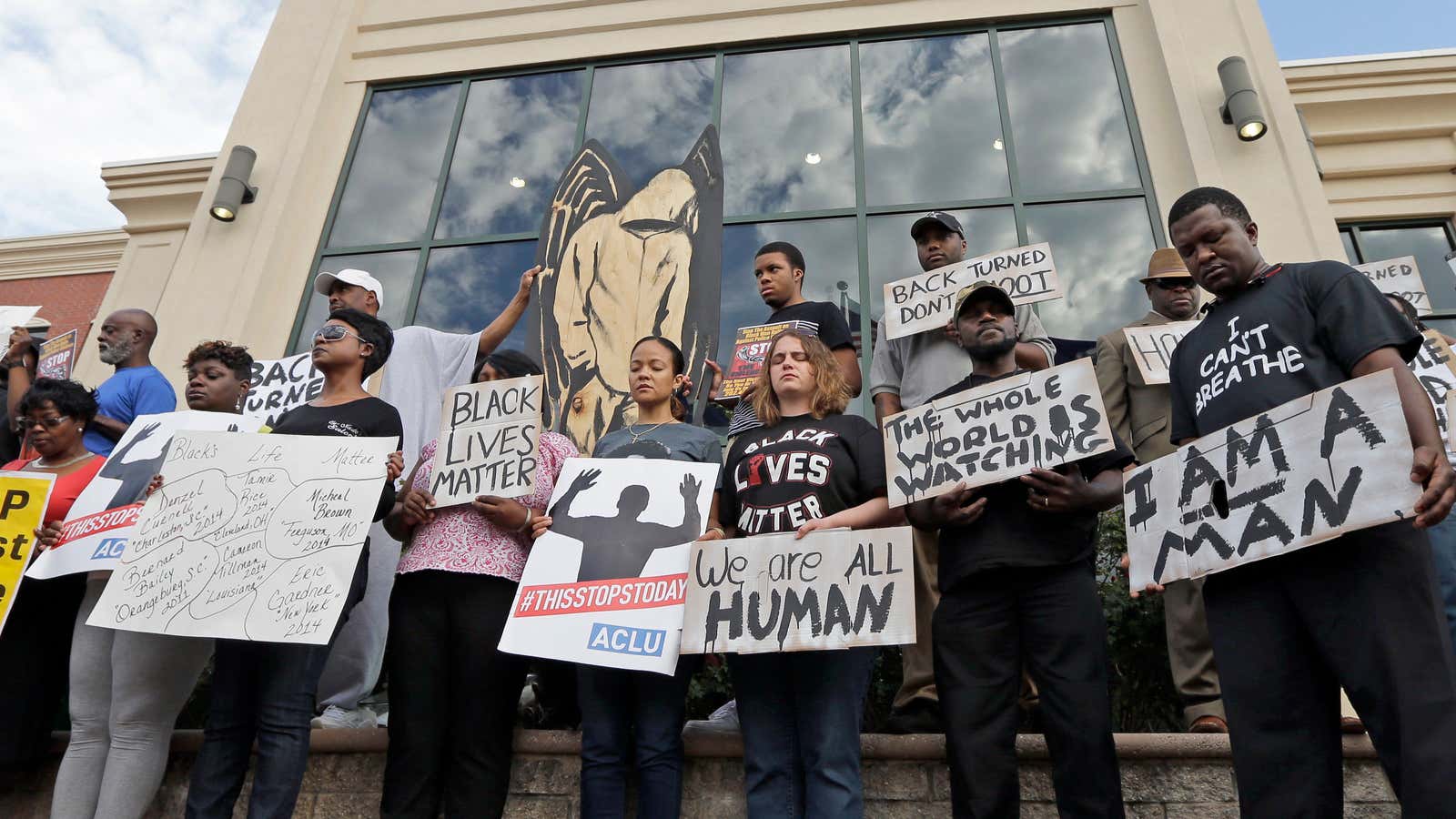North Charleston, South Carolina, is first and foremost home.
It’s where I spent my formative years, where my parents live, and where I went for Thanksgiving last year.
But North Charleston is, for many people, a headline now. Charleston’s blacker, poorer neighbor is a headline because Walter Scott died there, because police officer Michael Slager murdered him there, allegedly.
A cell phone video shows Scott’s last moments: Slager shooting him in the back eight times before handcuffing his corpse and appearing to plant a stun gun on him as an alibi.
My parents were fortunate enough to raise their children in a nice suburban neighborhood on North Charleston’s edge, with economic stability and good schools and all the other things that show up when white people do. It’s far enough from the crime scene and the city’s rough parts that I could, if I wanted, pretend I was safe from the evils America regularly visits upon those parts, where everyone tends to look like me.
But black people from the suburbs still pass through those parts all the time, maybe heading downtown or off to church or to get a haircut. I saw the address where Scott died and remembered the smoked sausage I bought up the street when I was last in town. That kind of proximity taps you on the shoulder and says, “It could have been you.”
Distance and nostalgia make it easier to enjoy old notions of home. I live in New York City now, far enough from Charlestons North and proper that they blend together a little bit. And when I tell people where I’m from, they usually rush to tell me about a great trip they had there, or one they’re planning, or one they wish they could make. So home becomes a place where the weather is always so nice and the buildings are so pretty and there’s so much culture. You lean on memories of childhood field trips and cookouts and the special smell the dirt has out there. The bad stuff falls away.
I try to not to think about South Carolina’s debate about flying the Confederate flag atop the state capitol, where moving it out front was a compromise, or that Charleston led the state’s charge out of American union to preserve slavery, or that North Charleston’s police have been having these kinds of issues for a while now. But then a white man in a position of power kills a black man in more or less cold blood and you just start ticking the past’s ugly little boxes. This history and that video have crushed my little delusions.
The first feeling I had when I read about Walter Scott’s death wasn’t surprise—and it shouldn’t be yours. This kind of thing can and does happen everywhere. It wasn’t sadness, or even anger—though they wasted no time bubbling to the surface. The first sensation was a dull ache, the kind that comes when a shallow warmth is ripped from your heart, the kind I’ve felt a lot these last few years.
But Scott’s family, a fiancee and four children, will endure a far deeper, far more complicated pain. And you shouldn’t make it worse. Don’t forget that this isn’t the first time this has happened, or even the first time it’s happened on camera. Don’t forget that an officer sworn to protect people like Scott lied to protect himself. Don’t forget all the little inequities came together to put this incident into motion, or that we can’t let them keep piling up.
Don’t forget that your notion of home is just as fragile as mine.
